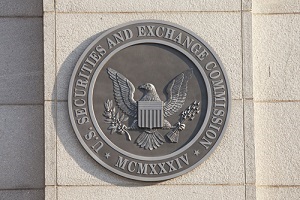Earlier this week, the Securities and Exchange Commission (SEC) unveiled a public service campaign to help older investors protect themselves against securities fraud. The campaign centers around a new TV spot called Never Stop Learning and several short and catchy informational videos highlighting various steps seniors and their caregivers should take to ward off fraud and safeguard retirement savings. In all this, the SEC hopes to arm pensioners with the information and guidance they need to protect themselves from the ever-increasing number of investor scams targeting the elderly.
The 30-second Never Stop Learning piece shows older adults enjoying various leisure pursuits like surfing, sightseeing, and playing with a grandchild. The soft-spoken narrator advises to never stop having fun; never stop exploring; and never stop learning, especially “when it comes to protecting your hard-earned money.” It then directs viewers to the SEC’s Investor.gov website, as a resource for the wise investor, concluding with the ultimate takeaway to “never stop doing what you love.”
The informational videos — similarly brief and breezy — provide even more pointed guidance, also steering viewers to the Investor.gov site.
One of the videos advises caregivers on how to help protect the finances of those in their charge and less able to fend for themselves. It points to three “warning signs” to look out for: (i) sudden financial changes; (ii) missing cash; and (iii) unusual account withdrawals or wire transfers.
Another video features the red flags of investment fraud, highlighting romance scams, imposter scams, and crypto scams as among the three most common scams targeting older investors. It then cautions against time-sensitive offers, high-pressure sales tactics, too-good-to-be-true deals, and promises of high-guaranteed returns. It closes with the clear instruction of doing your research, asking good questions, and taking your time with your investment decisions.
A third video is on protecting retirement savings, with four simple tips on how investors — old and young alike — can avoid becoming a victim of fraud:
Background Checks. Always do background checks (on Investor.gov) on the investment professional or firm you are considering and make sure they are properly licensed and registered.
Trusted Contact. Assign a backup contact in case you cannot be reached or are suffering from diminished capacity.
Take Your Time. Do not rush into investment opportunities and do your research.
Strong Passwords. Minimize the personal information you disclose, check your privacy settings, and make sure your passwords are strong.
In announcing the new campaign, the SEC stressed the importance of being an informed investor and how the campaign provides the necessary tools to help you get there:
Older investors have years of life experience, and we want to encourage them to build on their experiences and knowledge to never stop learning about investing and fraud protection. This year’s campaign, along with our new Never Stop Learning resource pages, provides vital information so that older investors have the tools and resources to safeguard their hard-earned money from fraud and abuse.
The bounty of self-help education measures the SEC has promoted like Never Stop Learning is just one way the agency has looked for outside assistance in policing fraud. Another way is through the SEC Whistleblower Program, which encourages industry and corporate insiders with information on potential securities violations to step forward and share that information with the agency. If that information leads to a successful enforcement action, the whistleblower may be entitled to up to 30 percent of the government recovery.
Over the past decade, the SEC has recovered billions of dollars from enforcement actions prompted or assisted by whistleblowers. In return, these individuals have received hundreds of millions of dollars in whistleblower awards. Just last month, the SEC made its largest award ever under the program — $279 million. It flowed from the $1 billion Swedish telecom giant Ericsson paid in December 2019 to settle SEC and Department of Justice charges of foreign bribery.
The bottom line is when it comes to protecting investors from securities fraud, there is only so much the SEC can do on its own. It wants educated investors and whistleblower insiders lending a helping hand.
If you think you may have information relating to securities fraud, please feel free to contact us so we can connect you with a member of the Constantine Cannon whistleblower lawyer team.
Read More
Financial & Investment Fraud
Securities Fraud
SEC Whistleblower Program
Contact Us Confidentially
Read SEC to Older Investors: “Never Stop Learning” at constantinecannon.com






Leave A Comment